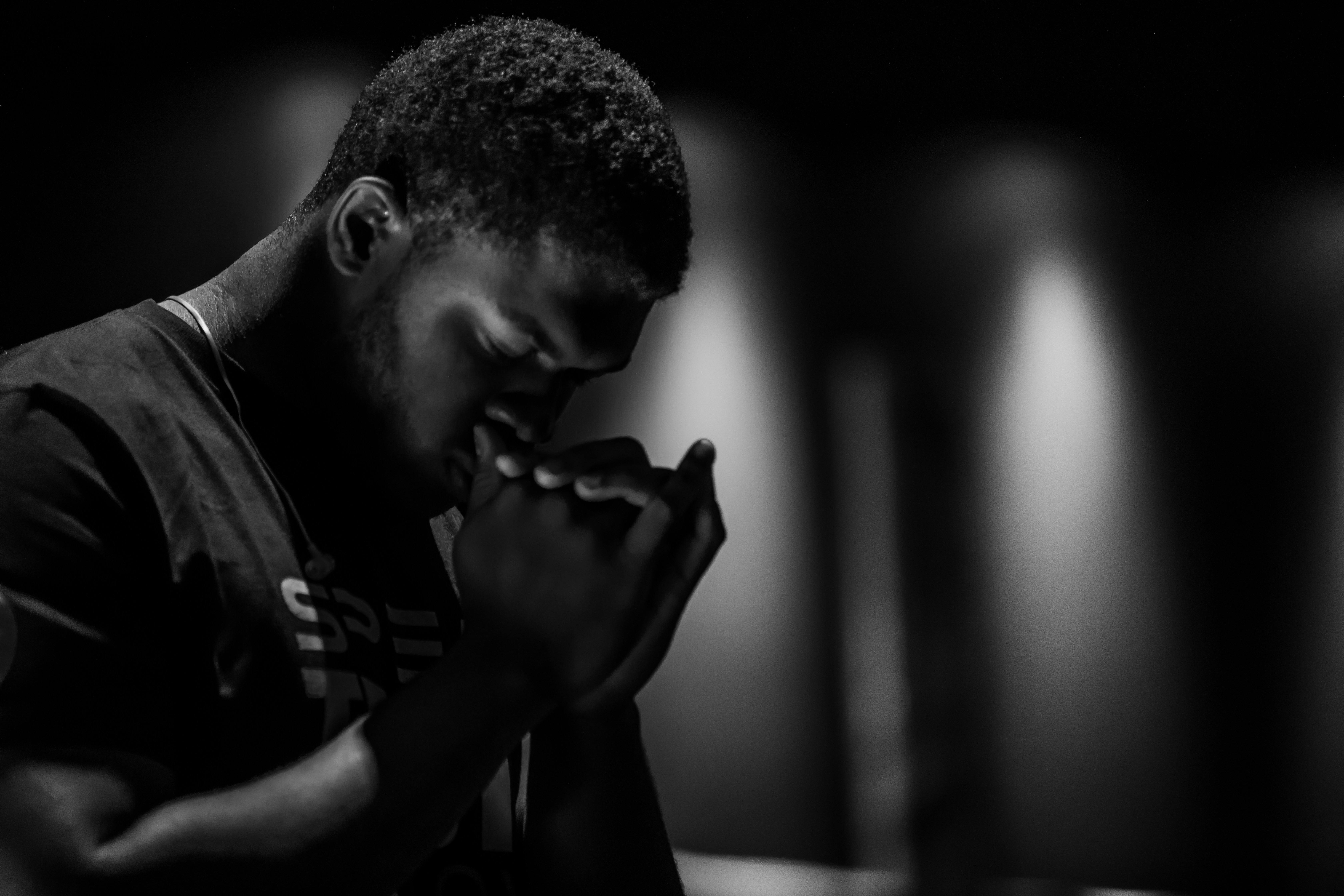When I first became a Christian, I had heard of people fasting—withholding from eating for hours, days, or even weeks at a time—and thought it was…weird.
Fasting seemed a thing only people who were ‘Super Christians’ would do, and it was hard to fathom how someone could intentionally go without a meal for that long. I mean, deliberately skipping Taco Tuesday? No thanks, that’s crazy talk!
Over time, though (and through lots of grumbling stomachs), I learned how fasting was not just a good suggestion, but monumental to a fuller life with Jesus—and actually didn’t have to be just concerning food. As a result, my faith has been transformed and is deeper than ever.
But believe me, it started with humble beginnings when I was asking questions similar to the ones you may be asking, especially after seeing the latest waves of intermittent fasting as a new diet or fad. I thought: Is fasting spiritual? Do I HAVE to fast? What are the types of spiritual fasting? What does it even do, and…how do I do it?
Is Fasting Spiritual?
Fasting trends are as common in our world today as ever, whether for health benefits or to have a cool anecdote to talk about at parties. But if you’re asking, “Is fasting spiritual?” you’ll find countless examples in the Bible that speak to Godly reasons for fasting that have been around for thousands of years and are still applicable today.

Does God Command Spiritual Fasting? What Does the Bible Say About Fasting?
As someone wanting to follow God, I often thought, “Do I have to fast?” Like, actually, what does the Bible say about fasting? Is fasting in the Bible? I dove in to see for myself.
Then Jesus was led up by the Spirit into the wilderness to be tempted by the devil. And after fasting forty days and forty nights, he was hungry. (Matthew 4:1-2).
“And when you fast, do not look gloomy like the hypocrites, for they disfigure their faces that their fasting may be seen by others. Truly, I say to you, they have received their reward. But when you fast, anoint your head and wash your face, that your fasting may not be seen by others but by your Father who is in secret. And your Father who sees in secret will reward you.” (Matthew 6:16-18).
Wait—Jesus says when I fast? Not if? And He did it himself? This isn’t an optional extra credit assignment? These passages struck me as I realized that this might not be just a suggestion from Jesus to start doing when I reached ‘Super Christian’ status (which I found out doesn’t exist) but something that seemed pivotal to my faith to practice regularly.

At the very least, it seemed like fasting was something Jesus thought was a good idea or beneficial to one’s faith. As a follower of Jesus, I wanted to follow his lead. But I still wanted to know the “why behind the why,” which led me down another rabbit hole.
Fasting in the Bible: Here’s Why We Fast
While there are a few more, two of the most prevalent examples I found of why people fast in the Bible are to grow closer to God and to ask Him to move in a certain way in one’s life.
Fasting for Change
When Jesus saw that the people came running together, He rebuked the unclean spirit, saying to it, “Deaf and dumb spirit, I command you, come out of him and enter him no more!” Then the spirit cried out, convulsed him greatly, and came out of him. … His disciples asked Him privately, “Why could we not cast it out?” So He said to them, “This kind can come out by nothing but prayer and fasting.” (Mark 9:25-26, 28-29).
Early on in my fasting journey, I received a group fasting schedule for someone’s sick wife. The goal was for everyone to take time in fasting and prayer to petition God for the healing of this man’s wife. I hate to admit this, but I ignored the email and continued my day. I still prayed, but I thought, would God really choose to heal this woman because I didn’t eat Chipotle on my lunch break?
Following this, I took to scripture and was surprised by the numerous examples of people fasting and praying in hopes God would move in a specific way. There’s David, who fasted and prayed for the healing of his son. There are the leaders of the early church, who, after Jesus’ resurrection, fasted and prayed over crucial decisions as they began their movement. There’s Ezra, who fasted and prayed for a safe journey when the Israelites were returning to Jerusalem after being in captivity. Then there’s Jesus, who, as shown above, said that certain demonic spirits could be cast out only by fasting and prayer.

In these examples and many others, there were times when God did give his people what they asked for in prayer and fasting. Other times, though, He did not. Nevertheless, I decided that if the Bible is littered with examples of people fasting along with praying, and Jesus himself implied that it has the potential to give more power to our prayers, then I wanted in.
Throughout the past year, God has grown my desire to fast and pray for change around me. I have fasted for my husband’s job, friends, coworkers, and their spouses, and healing for my grandfather. Each time, God honored my sacrifice—it may not be how I asked for it, but I believe my prayer was heard and honored, and I felt closer to God and his heart as a result.
Fasting for More of God
“Yet even now,” declares the Lord, “return to me with all your heart, with fasting, with weeping, and with mourning; and rend your hearts and not your garments.” Return to the Lord your God, for he is gracious and merciful, slow to anger, and abounding in steadfast love; and he relents over disaster. (Joel 2:12-13).
“Is not this the kind of fasting I have chosen: to loose the chains of injustice and untie the cords of the yoke, to set the oppressed free and break every yoke? (Isaiah 58:6)
All of my questioning and nervousness made me realize how much I (and the rest of the world) depend on food. And we don’t rely on it just to survive—but for comfort. I then saw that depriving my body of something I desired strongly taught me that God is all my soul truly needed: The Lord is my shepherd; I shall not want. (Psalm 23:1)
Through it all, I learned fasting is an opportunity to draw near to God, reminding me of James 4:8: “Come near to God and he will come near to you.” When I take the time to fast and be intentional with prayer, I give time and space for God to be closer to my heart and mind. I’m not saying I’ve ever heard God’s audible, booming voice, but in most of my fasting, I’ve heard from him more consistently than when I am not fasting.

I saw how Jesus spoke about fasting and the benefits of partaking in it—great. But was it just from food, or were there other types of spiritual fasting I was unaware of?
What Are The Types of Spiritual Fasting?
Types of spiritual fasting in the Bible are typically limited to abstaining from food. There is one instance of the apostle Paul instructing that a married couple choosing to fast from sex could be beneficial to draw near to God, and to me, that means fasting from things outside of food is on the table.
Now, while people didn’t have social media or Disney+ to abstain from in Biblical times, I think that areas such as these can also be very beneficial to fast in. I believe the heart of fasting is a desire to draw near to God or see him move, so—online shopping, Instagram, Netflix, video games, sweets? Taking time away from anything we invest significant time into for certain seasons could benefit one’s walk with God.
Counting the Cost
Fasting hasn’t gotten easier for me, and through countless failures and successes, the rewards keep stacking up. God has met me in this space, and I see how easy an idol food (or streaming shows, my iPhone, or a million other things)can become. These vices may numb anxieties, but God provides real peace and hope.
I started small. Early on, I would fast for half a day, from sunrise to 1 PM, once a month. After a few months, I increased it to a full day (sunrise to sundown) every month. This felt like the right thing for me, so I’ve stuck with it. And if something important to pray for comes up, I do my best to fast and pray during that time (whether for an hour or up to a few days).

When I couldn’t fast from food for medical reasons or because I was nine months pregnant, I chose to fast from things that I struggled with control over, like Instagram or online shopping. Then, I put it on my calendar and held myself to it.
Looking back, I’ve seen a joy and dependence on God that I would never have had if I hadn’t begun this journey. When fasting, every time I crave food, social media, or that one show I’m choosing to abstain from, I’m reminded to pray and press into a quiet space with God and be reminded that through it all, He is all I need.
Disclaimer: This article is 100% human-generated.
Reflections to share? Got an idea for an article? Email us at articles@crossroads.net













